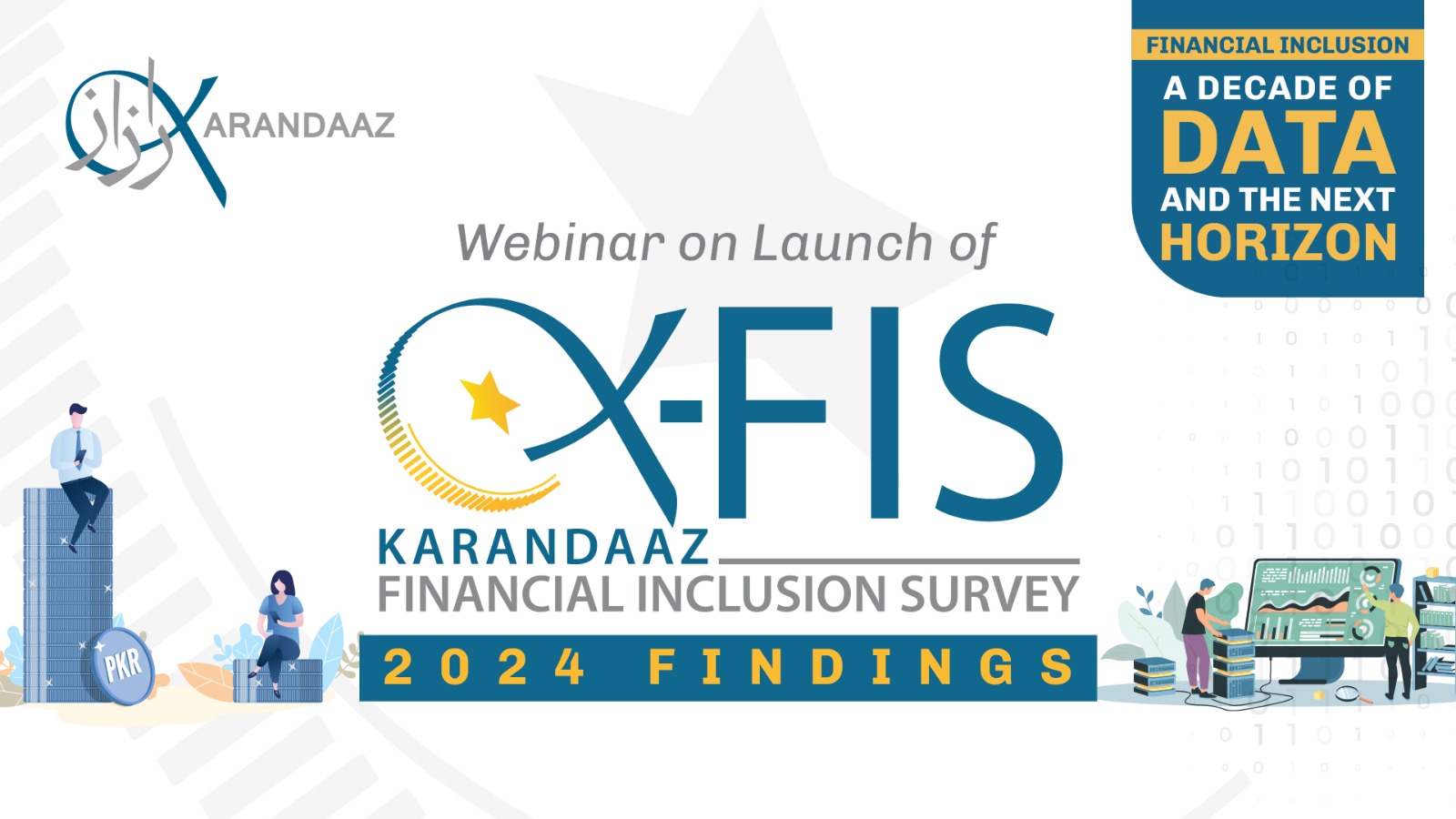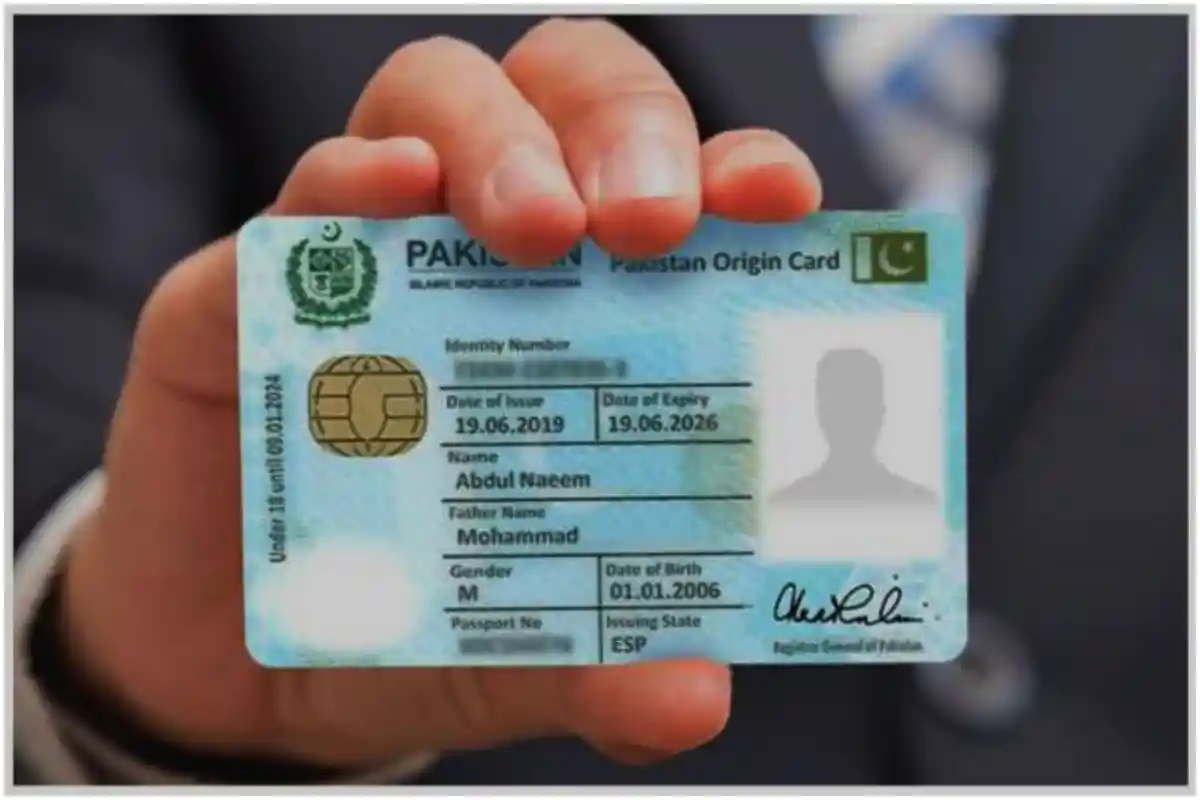Karandaaz Pakistan, an impact investment platform dedicated to driving sustainable economic growth and strengthening financial and social protection systems for inclusion, has released the 2024 edition of the Karandaaz Financial Inclusion Survey (K-FIS), marking a decade of demand-side financial data and providing a powerful roadmap for advancing inclusive finance in Pakistan.
K-FIS continues to be the only nationally representative demand side survey that captures people’s real financial experiences across gender, geography, and income segments. The 2024 findings reveal a significant leap in financial inclusion, which has increased fourfold, from just 8% in 2013 to 35% in 2024. This growth is primarily driven by the rise of mobile money, now used by 30% of adults, up from less than 1% ten years ago.
While this progress is encouraging, the report highlights persistent gaps in usage, trust, and equity. Only 14% of women report owning a full-service financial account, compared to 56% of men. Women’s access to mobile phones also remains limited, with only 46% ownership compared to 82% for men, limiting their ability to avail digital financial services.
Geographic disparities persist as well. Punjab (40%), Islamabad (38%), and Gilgit-Baltistan (33%) have made significant strides in inclusion, whereas Balochistan (23%) and Azad Jammu & Kashmir (25%) continue to lag behind. The adoption of the government-backed RAAST payment system shows promise, with wallet registrations more than doubling from 17% to 41% in the last two years. Users cited speed (77%) and affordability (43%) as the main advantages.
In his welcome remarks, Waqas ul Hasan, CEO Karandaaz, said “As the K-FIS results reveal, there is a persistent and troubling gender divide. Today, 56% of adult men in Pakistan have a registered financial account, compared to just 14% of women.” He further added, “Karandaaz envisions a Pakistan where these divides no longer exist and where every individual, regardless of gender, has the tools to participate fully in the formal economy. We believe that inclusion is not a one-time achievement, but a continuous journey, and that data, like the one we share today, must guide us.”
READ MORE:
SECP Forms Committee to Streamline Capital Market Account Opening
Despite this progress, formal financial services remain underutilized. A striking 85% of adults continue to rely on informal sources—mainly family and friends—for credit. Meanwhile, trust remains a critical barrier: only 9% of excluded adults say they trust banks, and just 8% trust mobile money providers. Only 36% feel comfortable using any financial service.
During the keynote address, Syed Samar Hasnain, Executive Director Digital Financial Services, State Bank of Pakistan (SBP), stressed on the significance of demand-side surveys, commenting, “Datasets are collected regularly on the supply side, from the perspective of financial institutions. However, data collection efforts on the demand side, from the perspective of households and individuals, are limited. Nonetheless, individual level surveys are essential to get invaluable insights regarding financial behavior.”
K-FIS offers actionable insights for policymakers, regulators, and service providers. It highlights the need for gender-responsive financial product design, deeper investment in digital infrastructure and trust-building, and a shift in focus from simply opening accounts to enabling financial resilience, helping people prepare for and recover from economic shocks.
The webinar for the launch also featured two important panel discussions. The first one, titled “From Growth to Gaps – Who’s Included, Who’s Left Behind: The Next Horizon in Financial Inclusion?”, was moderated by Stephen Rasmussen, former CEO of CGAP, with an expert panel consisting of Jahanzeb Khan, CEO, easypaisa Digital Bank; Mehr Shah, Head of Research, Raqami Islamic Digital Bank; and Umair Ahmad, Senior Joint Director, Agricultural Credit & Financial Inclusion Department, State Bank of Pakistan.
The second panel, titled “Closing the Gender Gap in Financial Inclusion and Building Financial Resilience within Communities,” was moderated by Ali Akbar Ghanghro, Senior Manager, Research & Insights, Karandaaz Pakistan. The panel featured Patrick Reily, Founding Partner, Uplinq Technologies; Hussam Razi, Associate Director, Innovations for Poverty Action; Halima Iqbal, CEO, Oraan; and Nageen Akhtar, Head of Innovation, Bank Alfalah.
In her closing remarks, Carol Coye Benson, Adviser to Karandaaz Board and Chair DFS Advisory Committee, Karandaaz, said, “Karandaaz Financial Inclusion Survey has become a cornerstone of evidence-based financial inclusion efforts in Pakistan by relying on demand-side data collected directly from people rather than from institutions. This survey helps us understand not just how many accounts exist, but how people actually use them and that is really important to understand. This year’s survey highlights both the progress that the country has made and the persistent gaps.” Ms. Benson concluded the event saying, “To everyone in the room, thank you for your ongoing dedication to developing a financial system that is more equitable, more trusted, and more responsive to the needs of Pakistanis.”
As Pakistan continues to invest in digital transformation, K-FIS stands as a significant tool for shaping an inclusive, equitable financial system—one that serves all citizens, regardless of gender, income, or geography.
Watch the full recording of the webinar: https://youtu.be/mdFjpbtVaYg
Download the Karandaaz Financial Inclusion Survey (K-FIS) – Narrative Report: https://www.karandaaz.com.pk/research/publications/karandaaz-financial-inclusion-survey-k-fis-narrative-report
Download the Karandaaz Financial Inclusion Survey (K-FIS) – Presentation Deck: https://www.karandaaz.com.pk/research/publications/karandaaz-financial-inclusion-survey-k-fis-presentation-deck
—xxx—
About Karandaaz Pakistan
Karandaaz Pakistan is committed to investing for shared prosperity by strengthening the financial and digital ecosystem through investments, innovation, and strategic partnerships. With a focus on inclusive, green, and sustainability-driven growth, Karandaaz expands financial access, supports businesses, and drives digital transformation—creating opportunities that foster a more resilient and equitable economy. Supported by seed funding from the Gates Foundation and the UK Government, Karandaaz is shaping a future where economic opportunity are within reach for all.




